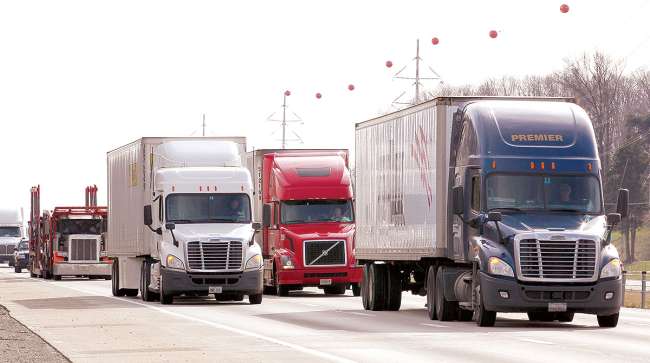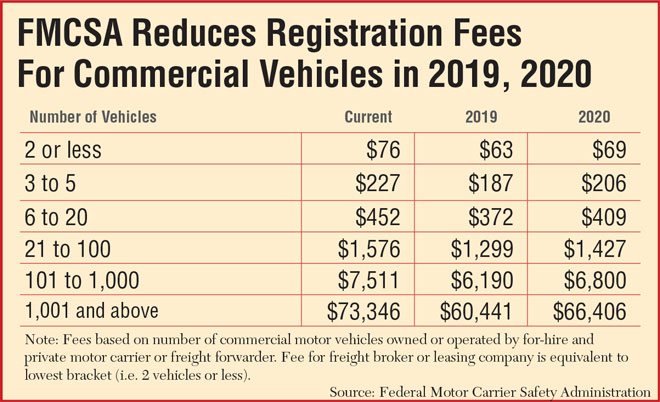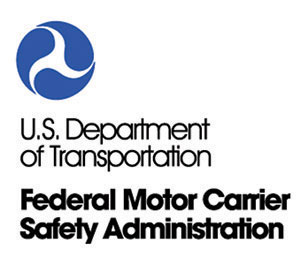Senior Reporter
FMCSA Plans to Continue to Reduce Commercial Vehicle Registration Fees in 2019, 2020

The Federal Motor Carrier Safety Administration has posted a proposed rule that would continue to reduce commercial vehicle registration fees in 2019 and 2020, the agency said in an Aug. 21 Federal Register announcement.
The proposed fees for the 2019 registration year would be reduced below the 2017 registration fee level that was in effect by approximately 17.59% to ensure that fee revenues do not exceed the statutory maximum, and to account for the excess funds held in the depository.
The proposed fees for the 2020 registration year would be reduced below the 2017 level by approximately 9.5%, FMCSA said.

The annual registration fees are collected by states from motor carriers, motor private carriers of property, brokers, freight forwarders and leasing companies for the Unified Carrier Registration and Agreement for the 2019, 2020 and subsequent registration years.
As indicated in the analysis attached to the Jan. 11, 2018, recommendation letter, as of the end of November 2017, the UCR plan had already collected $7.3 million more than the statutory maximum of $112.78 million for registration year 2017. The UCR plan estimates that by the end of 2018, total revenue will exceed the statutory maximum by $9.17 million, or approximately 8.13 %.
The UCR plan and the 41 states participating in the UCR agreement are administered by a 15-member board of directors, 14 appointed from the participating states and the industry, plus the deputy administrator of FMCSA. Revenue collected is allocated to the participating states and the UCR plan.

The UCR program is a federally mandated, annual state-administered program for registering and collecting fees from operators of vehicles engaged in interstate commerce.
The program applies to for-hire and private motor carriers, freight forwarders, leasing companies and brokers based in the United States, Canada and Mexico.
The money collected from registration fees generally is used by states to help pay for highway safety enforcement, although there is no legal requirement that dictates how the funds are spent.
The UCR plan’s recommendation reduces fees based on collections over the statutory cap in 2017, and also includes a reduction in the amount of the administrative cost allowance from $5 million to $3.5 million for the 2019 and 2020 UCR agreement registration years. The board completed an analysis estimating the amount of administrative cost allowance needed for the 2019 and 2020 registration period and has determined that an allowance of $3.5 million will be needed each year for those registration years.


